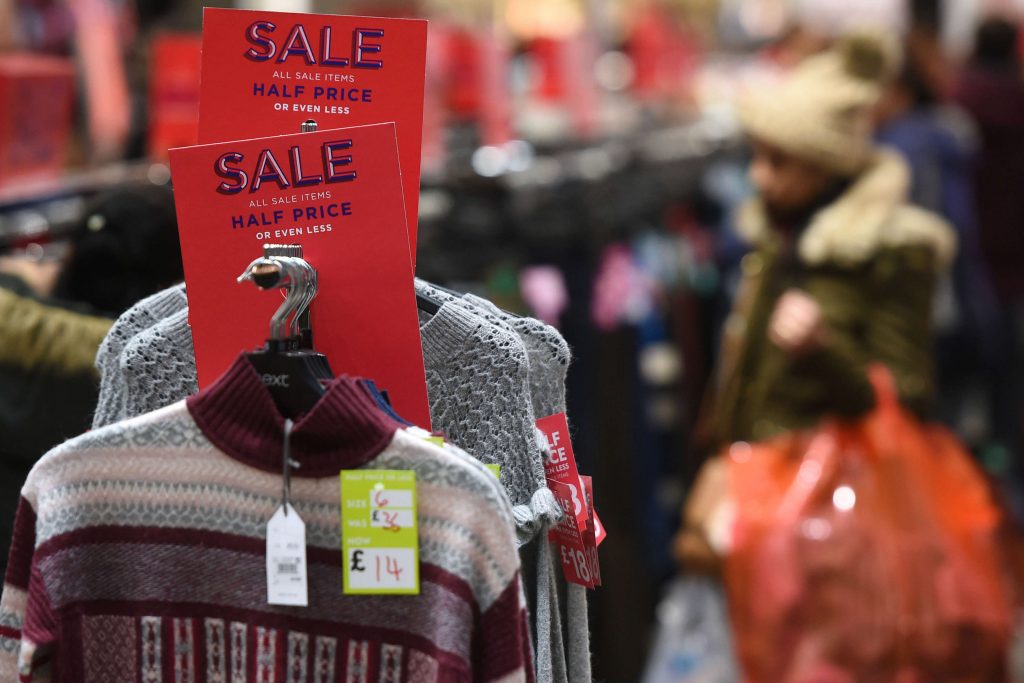// UK inflation more than doubles as energy and fashion prices surge
// The ONS says CPI jumped from 0.7% in March to 1.5% in April
// Data showed that clothing & footwear prices rose 2.4% on the month as stores reopened with new seasonal ranges at full prices
Britain’s rate of inflation more than doubled in April as energy costs soared and fashion retailers hiked their prices, according to official figures.
The ONS said Consumer Price Index (CPI) inflation jumped from 0.7 per cent in March to 1.5 per cent in April, the highest level since March last year.
Rising prices in fashion was a key driver behind the increase after non-essential retail started to reopen on April 12.
READ MORE:
- Shop prices fell in April as Brits return to non-essential stores0
- Fashion price hikes behind latest inflation rise
The ONS data showed that clothing and footwear prices rose 2.4 per cent on the month as stores reopened with new seasonal ranges at full prices.
It comes after months of discounting across the sector, which has suffered amid lockdown restrictions.
The inflation increase is also attributed to a sharp rise in electricity prices rose sharply, as the default tariff cap was increased recently compared with a cut a year earlier, as well as the rising cost of crude oil that saw motor fuel inflation rise at its fastest pace for more than four years.
“Inflation rose in April, mainly due to prices rising this year compared with the falls seen at the start of the pandemic this time last year,” ONS chief economist Grant Fitzner said.
“This was seen most clearly in household utility bills and clothing prices.
“As the price of crude oil continues to rise, this has fed through to the cost of motor fuels, which are now at their highest since January 2020.”
April’s CPI hike had been expected by economists, but there are concerns over soaring inflation this year as the global economy recovers from the Covid-19 pandemic.
The Bank of England forecast earlier this month that UK inflation will increase above its two per cent target, to 2.4 per cent in the final three months of 2021.
However, Governor Andrew Bailey has sought to reassure that the spike is likely to be temporary and should return to around two per cent in the medium term.
Meanwhile, the Retail Price Index (RPI), a separate measure of inflation used to calculate train ticket price rises and student loan interest, leapt higher to 2.9 per cent in April from 1.5 per cent in March.
This marked the highest RPI rate since June 2019.
with PA Wires
Click here to sign up to Retail Gazette’s free daily email newsletter
















